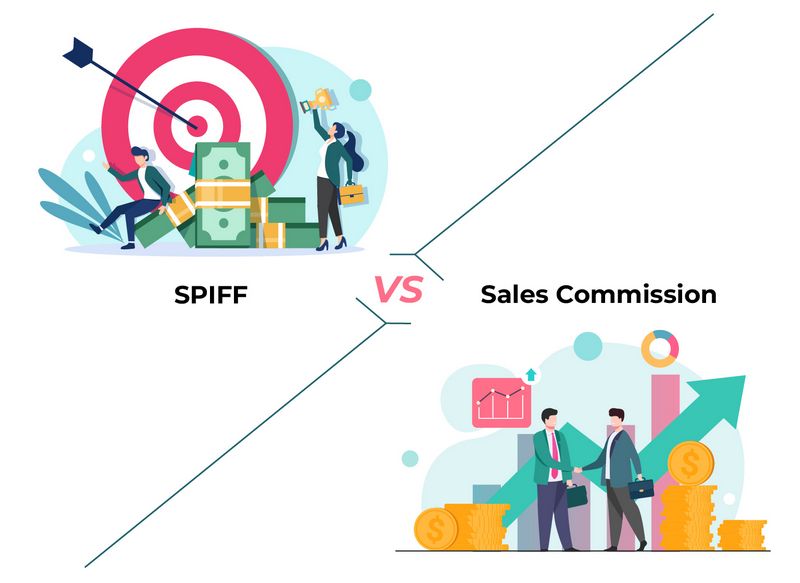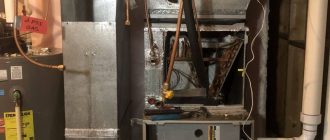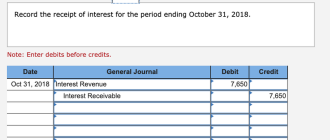The 2023 Plumber Salary Guide

Introduction to the Plumber Salary Guide
Are you considering a career as a plumber? Or maybe you’re already in the field and wondering what your earning potential could be. Look no further – welcome to the 2022 Plumber Salary Guide! In this comprehensive article, we’ll explore all the factors that can impact your salary as a plumber, from geographic location to level of experience and specialization. Whether you’re just starting out or aiming for master plumber status, understanding these key variables will help you navigate your way towards a successful and rewarding career in the plumbing industry. So let’s dive in and uncover the secrets behind plumbers’ salaries!
Factors Affecting Plumber Salaries
Factors Affecting Plumber Salaries
When it comes to determining plumber salaries, several factors come into play. Let’s take a look at some of the key elements that can influence how much a plumber earns.
Geographic location and local market play a significant role in determining plumber salaries. Plumbers working in high-demand areas or cities with higher costs of living tend to earn more than those in rural or less populated regions.
The level of experience and skill set also have an impact on plumbers’ earnings. As plumbers gain more experience and develop specialized skills, they become more valuable to employers, which often leads to higher wages.
Certifications and specializations within the plumbing industry can also affect salary levels. Plumbers who hold advanced certifications or specialize in specific areas such as gas fitting or pipe welding may command higher pay due to their expertise.
The type of employment and work setting can have varying effects on plumber salaries. Self-employed plumbers may have greater earning potential compared to those working for established plumbing companies, but they also bear additional responsibilities like marketing their services.
Union affiliation and collective bargaining power can influence plumber salaries as well. Unionized plumbers often benefit from negotiated wage rates, benefits packages, and job security provided by their unions.
Plumbing industry demand and economic factors are essential considerations when assessing salary ranges. Areas experiencing high construction activity or infrastructure development projects tend to offer better opportunities for plumbers with increased demand driving up wages.
Understanding these factors is crucial for both aspiring plumbers looking to enter the field and seasoned professionals seeking career advancement opportunities. By considering these variables, individuals can make informed decisions about where they choose to work, what certifications they pursue, whether joining a union is advantageous, all while negotiating fair compensation based on their skills and experience level
Geographic Location and Local Market
The geographic location plays a significant role in determining the salaries of plumbers. Different regions have varying demands for plumbing services, which can directly impact the earning potential of professionals in this field.
In areas with high population densities or rapid urbanization, such as major cities or growing suburbs, there is often a greater need for plumbers. This increased demand can lead to higher wages due to limited supply and competition among employers.
On the other hand, in more rural or remote locations where there may be fewer construction projects or maintenance needs, plumber salaries could be relatively lower. Plumbers working in these areas might need to consider expanding their skill set or seeking job opportunities in nearby towns or cities.
Moreover, the local market conditions also affect plumber salaries. Factors like cost of living, average income levels, and prevailing wage rates within an area can all influence compensation packages offered by employers.
Therefore, it is crucial for aspiring plumbers to research and understand the dynamics of their local market before entering this profession. By staying informed about regional trends and adjusting career plans accordingly, individuals can maximize their earning potential within specific geographic locations
Level of Experience and Skill Set
When it comes to plumbing, experience and skill set play a crucial role in determining plumber salaries. A plumber’s level of experience directly impacts their earning potential in the industry.
In general, entry-level plumbers who are just starting out can expect to earn a lower salary compared to those with several years of experience under their belt. This is because experienced plumbers have honed their skills over time, making them more efficient and effective at their job.
Additionally, the types of skills a plumber possesses can also impact their earning potential. Plumbers who have specialized knowledge or certifications in specific areas such as gas fitting or pipe welding may command higher salaries due to the increased demand for these niche skills.
Moreover, plumbers with advanced skill sets such as problem-solving abilities and project management expertise are highly sought after by employers. These individuals often take on leadership roles within plumbing companies or start their own businesses, which can lead to higher incomes.
The combination of experience and skill set significantly influences a plumber’s salary trajectory in the industry. As they gain more experience and expand their repertoire of skills, they open doors for new opportunities and potentially higher paychecks down the line.
Certification and Specializations
Certification and Specializations play a significant role in determining a plumber’s salary. In the plumbing industry, having the right certifications can open doors to higher-paying job opportunities. Plumbers who have undergone specialized training and obtained certifications are often sought after by employers because they possess advanced skills and knowledge.
Certifications such as Journeyman Plumber or Master Plumber demonstrate a plumber’s expertise in their field. These certifications require years of experience, passing an exam, and fulfilling specific criteria set by regulatory bodies or professional organizations. By obtaining these certifications, plumbers are recognized for their high level of skill and dedication to their craft.
In addition to general plumbing certifications, there are also specialization options available within the field. Specializations like pipefitting, gas fitting, or green plumbing focus on specific areas of expertise and require additional training beyond standard plumbing education.
Having specialized certifications can give plumbers a competitive edge when negotiating salaries with potential employers. Employers value specialists who can handle complex projects effectively and bring added value to their team.
It is important for aspiring plumbers to research which certifications are most relevant in their area or desired career path. Investing time and effort into acquiring these qualifications can lead to better job prospects and higher earning potential in the long run.
Certification programs provide not only increased earning potential but also enhanced professional credibility within the industry. Plumbers with specializations have more opportunities for advancement as they gain recognition for their expertise in niche areas of plumbing work.
Type of Employment and Work Setting
One important factor that can significantly impact a plumber’s salary is the type of employment and work setting they are in. Plumbers can work as employees for plumbing companies, be self-employed, or even work on a contract basis.
For those working as employees, their salaries may be determined by factors such as the size and reputation of the company they work for, as well as the overall demand for plumbers in their area. Larger companies may offer higher salaries due to their resources and client base.
On the other hand, self-employed plumbers have more control over their earnings but also bear greater financial risk. They must manage their own business expenses while ensuring a steady stream of clients to maintain a stable income.
Additionally, some plumbers choose to specialize in specific areas within the industry such as residential or commercial plumbing. This specialization can lead to higher-paying opportunities depending on market demand.
Furthermore, the work setting can also affect a plumber’s earning potential. Plumbers who primarily do service calls may earn less compared to those involved in large-scale construction projects where there is typically more money at stake.
When considering career options within the plumbing industry, it’s important to take into account not only one’s skills and experience but also factors like employment type and work setting that can influence salary potential.
Union Affiliation and Collective Bargaining
Union Affiliation and Collective Bargaining play a significant role in shaping the salaries of plumbers in the industry. Being part of a union can provide several benefits, including better wages, improved working conditions, and access to healthcare and retirement plans.
Unions negotiate with employers on behalf of their members to secure fair compensation packages. Through collective bargaining agreements, unions strive to ensure that plumbers receive competitive wages based on their skills and experience level. These agreements may also include provisions for overtime pay, bonuses, and other perks.
Joining a union can be advantageous for both entry-level and experienced plumbers. For beginners in the field, being part of a union can provide valuable training opportunities through apprenticeship programs. This allows them to gain practical experience while earning a livable wage.
Experienced plumbers who are members of unions have the advantage of higher wages compared to non-unionized counterparts. Unions advocate for equitable pay based on skill level and expertise, ensuring that experienced plumbers are fairly compensated for their years of service.
Furthermore, unions often offer additional benefits such as job security through seniority rights and protection against unfair treatment or dismissal by employers. Union affiliation can provide a sense of community among plumbers who share common goals related to workplace fairness and professional development.
Joining a union in the plumbing industry can positively impact salary potential by providing access to better compensation packages negotiated through collective bargaining efforts. Plumbers looking for stability, fair pay scales based on experience levels,, training opportunities,and additional benefits should consider exploring union affiliation options within their area or region

Plumbing Industry Demand and Economic Factors
The demand for plumbers is closely tied to the overall health of the construction industry. When new buildings are being constructed, renovated, or maintained, skilled plumbers are in high demand. This means that in areas experiencing a boom in construction activity, there will likely be more job opportunities for plumbers.
Additionally, economic factors such as population growth and urbanization play a significant role in determining the demand for plumbing services. As cities expand and populations increase, the need for infrastructure development grows. This includes building new homes, commercial spaces, and public facilities—all of which require plumbing systems.
Another factor that affects plumbing industry demand is technological advancements. With innovations like smart home technology and sustainable plumbing solutions becoming increasingly popular, homeowners and businesses are seeking out professionals who can install and maintain these systems.
Furthermore, economic downturns can have an impact on the plumbing industry. During times of recession or financial instability when construction projects slow down or come to a halt altogether, job opportunities may decline temporarily.
Staying up-to-date with current trends in the construction industry and adapting to changes in technology will help plumbers navigate shifts in demand effectively. By continuously expanding their skill set and keeping an eye on market conditions locally as well as nationally/internationally they can position themselves for success even during challenging economic times.
Average Plumber Salaries by Region
When it comes to plumber salaries, the region in which you work can have a significant impact on your earning potential. Different areas of the country have varying demands for plumbing services and differing costs of living, both of which influence salary levels.
In general, regions with higher populations and bustling metropolitan areas tend to offer higher salaries for plumbers. This is because there is typically more demand for plumbing services in these densely populated areas. Cities like New York, Los Angeles, and Chicago are known to offer some of the highest average plumber salaries in the United States.
On the other hand, rural or less populated regions may have lower average plumber salaries due to lower demand and fewer job opportunities. However, it’s important to note that cost-of-living factors should also be considered when evaluating regional salary differences.
For example, while a plumber may earn less in a smaller town or rural area compared to their urban counterparts, they may also benefit from lower living expenses such as housing costs or transportation fees.
Furthermore, economic conditions within each region can greatly impact plumber salaries. Areas experiencing rapid growth or booming construction industries often see an increase in demand for skilled tradespeople like plumbers. In turn, this increased demand can drive up wages.
Understanding how region affects average plumber salaries allows aspiring plumbers or those looking for new opportunities to make informed decisions about where they choose to work based on their financial goals and lifestyle preferences
Salary Range for Entry-Level Plumbers
When starting out in the plumbing industry, entry-level plumbers can expect a range of salaries depending on various factors. These factors include geographic location, level of experience, certifications, and type of employment.
In general, entry-level plumbers can anticipate earning between $30,000 to $45,000 per year. However, it’s important to note that this is just an average range and actual salaries may vary.
Geographic location plays a significant role in determining entry-level plumber salaries. Areas with higher costs of living tend to offer higher wages for plumbers. For example, plumbers working in metropolitan cities like New York or San Francisco may earn more compared to those working in smaller towns or rural areas.
Another factor influencing salary is the level of experience and skill set possessed by the plumber. Those who have completed apprenticeships or vocational training programs are likely to command higher wages than those without any formal training.
Certifications also play a crucial role in determining entry-level plumber salaries. Plumbers who hold additional certifications such as backflow prevention certification or gas line installation certification often earn higher wages due to their specialized skills.
The type of employment can impact salary ranges for entry-level plumbers. Those working as independent contractors may have more control over their rates and potential earnings compared to those employed by plumbing companies.
While the salary range for entry-level plumbers may be modest at first glance,
there are opportunities for growth and advancement within the plumbing industry through gaining experience and acquiring additional certifications.
Salary Range for Experienced Plumbers
Experienced plumbers, with their extensive knowledge and proven track record in the field, can expect to earn a higher salary compared to entry-level counterparts. The salary range for experienced plumbers varies depending on several factors such as geographic location, certifications held, and level of expertise.
In general, experienced plumbers can earn anywhere from $50,000 to $80,000 per year. However, it’s important to note that this is just an average range and salaries can vary significantly based on individual circumstances.
Factors such as the size and reputation of the company you work for can also impact your earning potential. Larger companies often have more resources and may be able to offer higher salaries or additional benefits.
Additionally, specialized skills or certifications in areas like HVAC installation or pipe welding can increase your value as a plumber and potentially result in a higher salary. These additional qualifications demonstrate a commitment to professional growth and make you more attractive to employers looking for specific expertise.
When it comes to determining your salary as an experienced plumber, it’s important to consider all relevant factors including your experience level, skills set, specializations and market demand in your area. This will help you negotiate fair compensation that reflects both your abilities and the current industry standards
Salary Range for Master Plumbers
Master plumbers, with their advanced knowledge and expertise in the field, can command higher salaries compared to entry-level or experienced plumbers. The salary range for master plumbers can vary depending on various factors such as geographic location, level of experience, certifications, and industry demand.
In general, master plumbers earn a higher salary due to their extensive training and ability to tackle complex plumbing projects. On average, the salary range for master plumbers falls between $60,000 to $90,000 per year. However, it’s important to note that this figure can be significantly higher in certain regions where there is high demand for skilled professionals.
Geographic location plays a crucial role in determining the salary range for master plumbers. Areas with a thriving construction industry or rapid urban development tend to offer more lucrative opportunities. For example, cities like New York or Los Angeles may have higher salaries compared to smaller towns or rural areas.
Experience also plays a significant role in determining the salary range for master plumbers. Those with several years of experience under their belt may be able to negotiate higher pay rates based on their track record of successful projects and client satisfaction.
Certifications are another factor that can impact the earning potential of master plumbers. Holding specialized certifications such as Certified Plumbing Design Technician (CPDT) or Green Plumber certification can enhance one’s qualifications and lead to better job prospects and increased earning potential.
The type of employment and work setting also play a role in determining salaries for master plumbers. Those who work independently as contractors or own their own plumbing businesses may have greater control over pricing structures which could result in higher earnings.
Union affiliation is an additional aspect that affects plumber salaries across all levels including those at the mastery level because unions often negotiate collective bargaining agreements that establish minimum wages based on skill level which helps protect workers’ rights while ensuring fair compensation.
Lastly but not least importantly – demand within the plumbing industry and overall economic factors also impact salary ranges for master plumbers.
Benefits and Perks in the Plumbing Industry
Working as a plumber comes with its fair share of benefits and perks that make it an attractive career choice. Aside from the job security and steady demand for their skills, plumbers can enjoy several advantages that make their work even more rewarding.
One of the main benefits within the plumbing industry is the potential for high earning potential. Plumbers are often compensated well due to the specialized nature of their work and the demand for their services. With experience, certifications, and additional training, plumbers can significantly increase their earning potential over time.
Another advantage is flexibility in work schedules. Many plumbers have the ability to choose when they want to work or take on specific projects. This allows them to maintain a healthy work-life balance and accommodate personal commitments or interests outside of their profession.
Plumbers also benefit from having various options for employment types and settings. They can choose to be self-employed entrepreneurs running their own plumbing businesses or opt for stable positions within established companies. Additionally, some plumbers prefer working in residential properties while others thrive in commercial or industrial settings – providing them with versatility and diverse experiences throughout their careers.
Health insurance coverage is another perk commonly available to plumbers through employers or professional organizations. This ensures that they have access to medical care if needed, giving them peace of mind knowing they are protected should any health issues arise.
Furthermore, many employers offer retirement plans such as 401(k) matching contributions or pension schemes. These long-term savings options allow plumbers to plan ahead financially and secure a comfortable future after retirement.
In addition to financial benefits, there are often opportunities for career advancement within the plumbing industry. Plumbers who demonstrate exceptional skills may become supervisors or managers, overseeing teams of other professionals. They may also choose to specialize in certain areas such as gas fitting or green plumbing technologies – opening up doors for higher-paying jobs with increased responsibilities.
Being a plumber offers not only financial stability but also a range of benefits and perks that contribute to a fulfilling
Negotiating Salary and Advancing in the Field
When it comes to negotiating your plumber salary, it’s important to be prepared and confident. Start by doing some research on average salaries for plumbers in your area. This will give you an idea of what you can expect and help you set realistic expectations.
During the negotiation process, highlight your skills, experience, and any certifications or specializations you have obtained. This will demonstrate your value as a plumber and give you leverage when discussing compensation.
Don’t be afraid to ask for what you believe is fair. Remember that negotiations are a two-way street, so be willing to listen to the employer’s perspective as well. Be open-minded and flexible while still advocating for yourself.
Advancing in the field of plumbing often requires continuous learning and skill development. Consider pursuing additional certifications or specialized training courses to enhance your knowledge base and increase your earning potential.
Networking with other professionals in the industry can also provide valuable opportunities for career advancement. Attend trade shows, join professional organizations, or participate in online forums where you can connect with others who share similar interests.
Stay up-to-date with industry trends and advancements by reading trade publications or following influential figures in the plumbing industry on social media platforms like LinkedIn or Twitter.
By continuously improving your skills, staying informed about industry trends, networking with peers, and confidently negotiating your salary when appropriate, you can position yourself for long-term success as a plumber. Always strive for growth and advancement within this rewarding field!
Future Outlook and Trends in Plumber Salaries
As the plumbing industry continues to evolve, it’s important to stay informed about the future outlook and trends in plumber salaries. The demand for skilled plumbers is expected to remain high in the coming years, which means there will be plenty of opportunities for growth and advancement.
One trend that is likely to shape plumber salaries is the increasing emphasis on sustainability and eco-friendly practices. As more homeowners and businesses prioritize energy efficiency, plumbers who specialize in green plumbing techniques may see an uptick in demand. This could lead to higher salaries as their expertise becomes more valuable.
Another factor that may impact plumber salaries is advancements in technology. With the introduction of smart home systems and innovative plumbing technologies, plumbers who embrace these new tools will be able to command higher wages. Familiarity with digital solutions like remote monitoring systems or leak detection sensors can set a plumber apart from their peers.
Additionally, as older generations of plumbers retire, there will be a growing need for new talent entering the field. This influx of newcomers has the potential to drive up wages as employers compete for qualified individuals. Furthermore, ongoing training and professional development will become increasingly vital for maintaining competitive salaries.
Given that plumbing services are essential regardless of economic conditions or technological advancements, job security within this industry remains strong. Plumbers can expect a stable career path with consistent opportunities for income growth over time.
Staying attuned to future trends such as sustainability efforts and technological advancements can help plumbers position themselves well within a changing job market. By embracing new skills and staying up-to-date with industry developments through continuous learning initiatives, plumbers can ensure they remain relevant while maximizing their earning potential.






